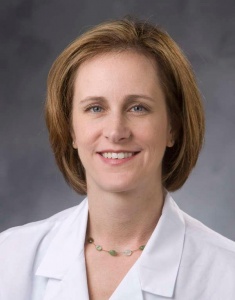1. What does a typical day look like to you?
Every day is different—and that’s part of the appeal of my job as a researcher, because I thrive on the variety. I wear two hats: In addition to my work as a researcher, I also have a clinical geriatrics practice, so part of my day includes seeing patients.
A typical week might find me in my research office working on grant applications, meeting with research teams across all different disciplines, thinking through different research projects, or being on the road, visiting hospitals to help them get new programs off the ground.
2. What is it about research that appeals to you?
Working with my patients, I can zero in on their problems and see where the health care system could serve them better. I find that being a researcher allows me to dive in and discover solutions to the problems I see in my practice.
3. Who are good candidates for this kind of work?
People who make good researchers love deep thinking and problem-solving They should enjoy working in teams, be good writers, and be energized by variety in their day-to-day activities. They should also be driven to dive in and tackle the problems faced by older adults.
4. What kinds of projects appeal to you?
I’m presently focused on two areas: First, I’m trying to improve the transition patients have from the ED back to their primary care doctors. When I got interested in this work, I was practicing in both settings and gained a keen understanding of how challenging it was for people in the ED to convey information—such as medication changes, for example—to a patient’s primary care doctor. So we’re working to make that transition as smooth and safe as possible.
Another focus of my work is trying to improve older patients’ mobility. I’ve seen that as we take care of older adults in the hospital and improve their medical condition, sadly, their physical function often worsens. It’s important that we develop programs in the hospital that get people up and walking about to prevent functional decline. This has been rewarding for me, and I’ve worked with a lot of hospitals to put in mobility programs. I’ve really gotten into the science of studying these programs to make sure they work well.

